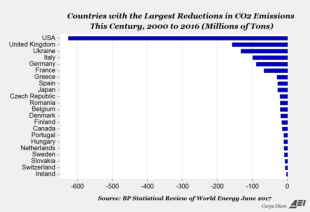October 10, 2014
Medicaid Expansion: Wisconsin Got It Right
On paper, Medicaid coverage appears far better than what most Americans enjoy—with lower cost-sharing and unlimited benefits. But by almost all measures, Medicaid enrollees fare worse than similar patients with private insurance and often experience worse health issues than patients with no insurance. Wisconsin made a wise choice when it decided to forgo a full Medicaid expansion in favor of a smaller program that would maximize the availability of private coverage for Wisconsin’s low-income residents.
Adobe Acrobat document [1.6 MB]
September 19, 2014
The State of Oklahoma recently chose not to expand Medicaid under the Affordable Care Act provisions. The expansion would have swelled coverage to adults with incomes up to 133% of the federal poverty level, creating a substantial increase in the number of people covered by Medicaid. With the state already struggling to fund the one in four Oklahomans on Medicaid, the proposed expansion would have caused significant budget concerns by pushing enrollment to one in three Oklahomans on Medicaid (33% as compared to the current 27%). Jagadeesh Gokhale, a member of the Social Security Advisory Board, estimated that by 2023, the Oklahoma Medicaid bill could be as high as $6.5 billion per year, the same as the entire state appropriated budget in 2012.
Adobe Acrobat document [26.9 KB]
February 19, 2014
Oklahoma has moved most of its Medicaid enrollees into privately-administered managed care plans under a program known as SoonerCare. The state should also move Medicaid enrollees to managed drug plans. Virtually all state Medicaid programs distribute some drugs on a fee-for-service (FFS) basis separately from any health plan, but Oklahoma is one of the minority of states that distribute almost all their Medicaid drugs this way. State Medicaid programs that carve out drug benefits often ignore drug therapy coordination and management. By contrast, integrating prescription drugs benefits with Medicaid managed care health plans improves quality and increases efficiency. In addition, privately managed Medicaid drug plans are more efficient than state-administered Medicaid drug benefit programs. Legislators will likely find that drug plan managers will lower costs if they allow drug plans to compete.
Adobe Acrobat document [423.1 KB]
November 25, 2013
In the debate over expected growth in Oklahoma’s Medicaid costs as a result of President Obama’s health care law, it’s important to get the numbers right. If Oklahoma’s Medicaid population were to grow as a result of the law, Oklahoma taxpayers would be left to pay the bill. It’s nice to know how much something will cost before you buy it. In the end, it would appear that Oklahoma made the right economic decision to reject the Fed’s demands.
If Oklahoma had agreed to a Medicaid expansion, normal governmental functions would have likely suffered.
Oklahoma Medicaid Expansion.pdf
Adobe Acrobat document [281.5 KB]


































































































